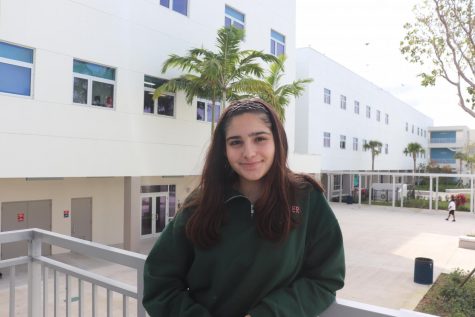The Story Behind “Stand with Sophie”
September 16, 2020
Sophie Long’s story, which sparked the hashtag #StandwithSophie, highlights the long-standing issue of child sexual abuse in America. On Sept. 2, a video surfaced on the internet which shows Sophie, a nine-year-old girl, refusing to go home with her mother and stepfather. In the video, Sophie accuses her stepfather, Jacob Bellington, of sexual assault. She also claims that her mother and grandmother allowed Bellington’s friends to assault her in their home. Sophie’s biological father, Michael Long, recorded the debacle where Sophie refused to leave her father’s car and go to her mother’s house. In the video, Sophie pleads for her father to help her as her grandmother attempts to pull her out of the car, and speaks up on her abuse.
Since her father posted the video on Facebook on Sept. 2, Sophie’s story gained a lot of recognition. On Sept. 5, the Frisco court ruled Sophie could stay with her father until Nov. Four days later, the court granted Sophie’s father full custody of Sophie and her two brothers. The police arrested Sophie’s mother after the court decision.
Although Sophie’s case remains under review, many children have not had the chance to come forward as Sophie did. According to RAINN (Rape, Abuse & Incest National Network), 30% of children face sexual abuse by a family member, 60% of those victims are abused by someone their family trusts and only 38% of child victims report assault.
Some signs of a child being sexually abused according to the NSPCC (National Society for the Prevention of Cruelty to Children) are the following: the child may spend a lot of time or less time online using social media, may seem more distant after using the internet and may be secretive as to who they communicate with.
One non-profit organization known for aiding victims of child sexual abuse is Miami-Dade County’s Kristi House.
“We provide care, coordination and treatment to help families heal from trauma,” Amanda Altman, the CEO of Kristi House, said.“Primarily the trauma of child sexual abuse and child sex trafficking.”
Kristi House was only the sixth children’s advocacy center in the United States at the time it was founded. Now, 850 exist across the country.
“We have to become better about talking about it [sexual abuse]. It is not fun but it is the only way [to improve things],” Altman said. “We have to remove the stigma so people will not be afraid to come forward. If I was a teenager and a friend told me something happened to them, I would strongly encourage them to go talk to an adult they trust. It could be a parent, a school counselor, or a teacher…”
Kristi House often plans events at schools and works with professionals to educate them. Teaching society how to deal with and respond to child sexual assault cases is one of the non-profit’s main goals.
Altman says that if a child reports a case to an adult, the adult must first, “believe them. A lot of times kids do not say anything because they feel they are not going to be believed. If one discloses to you, number one you need to believe them; number two, you need to reassure them they have not done anything wrong and that there are resources that can help them.”
RAINN offers similar advice as Altman. Sophie’s mother and grandmother did not take these actions when Sophie stood up to her abuser, but her father did. In many cases, victims do not receive proper treatment when they communicate their abuse.
“My piece of advice to a victim is: this does not define you. You can heal from this but you need early intervention.” Altman said.
Sexual abuse is a prevalent issue in America, including the populated city of Miami. Every nine minutes, an American child is sexually assaulted, 66 percent of them are between the ages 12-17. As a result of this assault, victims are four times more likely to abuse drugs in the future and experience PTSD. Florida ranks number three in the nation for human trafficking and Miami is number one in the state. These statistics reveal the importance of bringing awareness to sexual abuse, whether it is through educating, exposing or simply acknowledging the problem exists.







